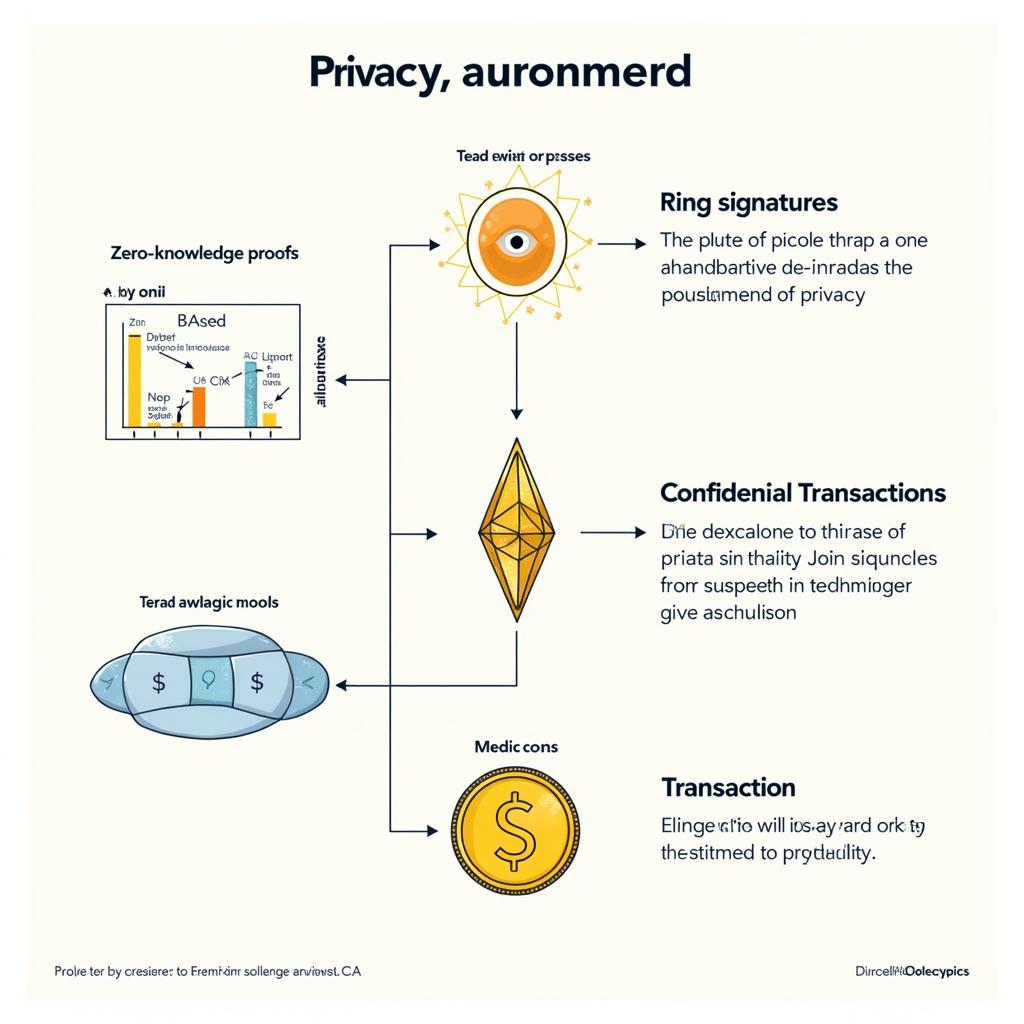Privacy coins face increasing scrutiny from governments worldwide. How can these cryptocurrencies, designed for anonymity, navigate the tightening regulatory landscape and continue to exist? This article explores the challenges and potential survival strategies for privacy coins in the face of government regulation.
The Privacy Coin Dilemma: Anonymity vs. Regulation
Privacy coins like Monero, Zcash, and Dash offer enhanced anonymity, making them attractive for users seeking financial privacy. However, this same anonymity raises concerns for governments worried about illicit activities like money laundering and terrorism financing. The core dilemma is how to balance the user’s right to privacy with the need for government oversight to prevent criminal activity.
Governments are increasingly implementing regulations targeting cryptocurrencies, and privacy coins are particularly vulnerable. These regulations can include Know Your Customer (KYC) and Anti-Money Laundering (AML) requirements, which directly contradict the core functionality of privacy coins. Some jurisdictions have even banned or considered banning privacy coins altogether.
Strategies for Survival: Adapting to the Changing Landscape
Despite the challenges, privacy coins have several potential strategies for survival. One approach is to enhance transparency and compliance features without completely sacrificing anonymity. This could involve implementing selective disclosure mechanisms, allowing users to reveal specific transaction details to authorities when required, while maintaining privacy for other transactions.
Another strategy is to focus on technological advancements that enhance privacy while addressing regulatory concerns. Zero-knowledge proofs, for instance, allow users to prove the validity of a transaction without revealing the details of the transaction itself. This technology could be crucial in balancing privacy and regulatory compliance.
 Cryptocurrency Security Technology
Cryptocurrency Security Technology
Can Privacy Coins Thrive in a Regulated Future?
The future of privacy coins hinges on their ability to adapt and innovate. By embracing transparency and compliance measures, focusing on technological advancements, and engaging with regulators proactively, privacy coins can potentially find a sustainable path forward. The key is to demonstrate the value of privacy while addressing the legitimate concerns of governments.
Furthermore, privacy coins can leverage the growing demand for financial privacy in a world of increasing surveillance. By positioning themselves as essential tools for protecting individual liberties and financial autonomy, privacy coins can garner broader support and resist outright bans.
Conclusion: Navigating the Regulatory Maze
The survival of privacy coins in a world of increasing government regulation depends on their ability to navigate a complex and evolving landscape. By adopting strategies that balance privacy with compliance and leveraging technological advancements, privacy coins can potentially carve a niche for themselves and continue to offer users a valuable tool for financial privacy. How will privacy coins survive government regulation? The answer lies in their capacity to innovate and adapt.
FAQ
- What are privacy coins?
- Why are governments concerned about privacy coins?
- What are some examples of regulations targeting privacy coins?
- How can privacy coins enhance transparency without sacrificing anonymity?
- What is the future of privacy coins?
Gợi ý các câu hỏi khác, bài viết khác có trong web.
- Tìm hiểu thêm về Bitcoin là gì?
- Ethereum hoạt động như thế nào?
- Đầu tư vào tiền điện tử có an toàn không?

